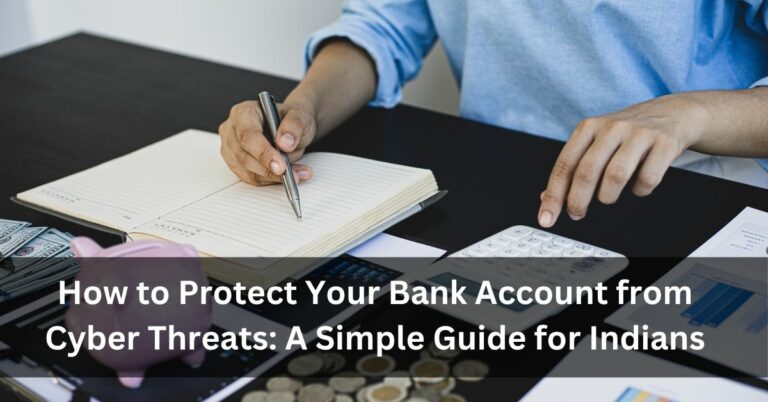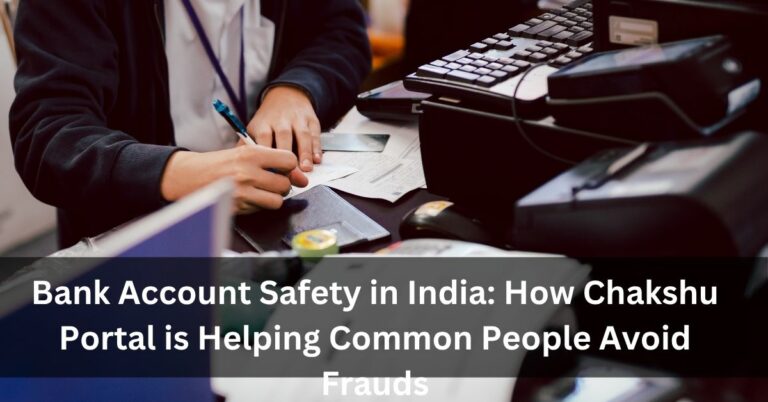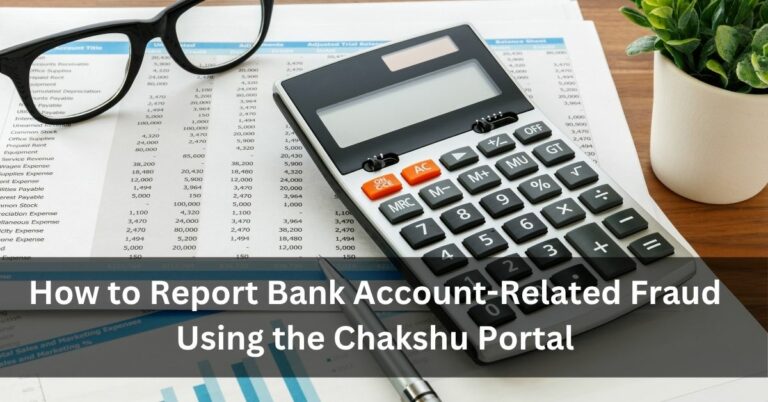How to Spot Them and Keep Your Bank Account Safe
In the past few years, KYC (Know Your Customer) scams have become very common in India. Many people are losing their hard-earned money because they are not aware of how these scams work. These frauds mostly target ordinary bank account holders, and the scammers pretend to be from your bank. They tell you that your KYC details need to be updated, and then they trick you into sharing personal information.
This article will help you understand what KYC scams are, how they happen, and what you should do to stay safe. We’ve explained everything in simple words so that everyone — from students to senior citizens — can understand and protect themselves.
You can always stay updated about such scams and other important bank-related alerts through Chakshu Portal.
What is a KYC Scam?
A KYC scam is when someone pretends to be from your bank and tells you that your KYC documents need to be updated. They may call you or send you a message on WhatsApp or SMS. They make it sound urgent — like your account will be blocked or frozen if you don’t act fast.
Then they ask you to share things like your Aadhaar number, PAN, bank account number, or OTP (One-Time Password). Sometimes they may even send you a link to click. Once you share this information, they can steal money from your account.
How Do These Scams Usually Happen?
Most KYC scams start with a phone call or a message. The person on the other side sounds very official. They may use the name of a popular bank like SBI, HDFC, or ICICI. They often speak in Hindi or your local language to sound more believable.
Here are some things they might say:
- “Sir, your KYC is incomplete. Your account will be blocked in 2 hours.”
- “Madam, we need your Aadhaar details to verify your account.”
- “Please click this link and update your KYC, or your net banking will stop.”
Once you believe them and share your details or click a link, they can get access to your bank account and steal your money.
You can read more updates about such frauds on Chakshu Portal.
Real Incidents From Across India
These scams are not just stories — they are happening every day.
- Delhi Case: A woman got a message on WhatsApp telling her to update her KYC. She downloaded an app the scammer sent her. That app gave the scammer full access to her phone and bank details. She lost ₹47 lakh.
- Raipur Incident: A man received a call from someone claiming to be a bank officer. He was asked to share his bank details for KYC purposes. He ended up losing ₹26.7 lakh.
- Mumbai Case: A businessman was tricked by someone who claimed to be from a private bank. The scammer said the businessman’s KYC was pending. The victim lost ₹4.5 lakh.
These are just a few examples. Thousands of people across India have lost money to KYC scams.
You can find more such news on Chakshu Portal.
How to Know It’s a Scam?
It’s not always easy to spot a scam, but here are some clear warning signs:
- You get a call or message out of nowhere about your bank KYC.
- The person says your account will be blocked soon.
- They ask for personal details like Aadhaar, PAN, bank account number, or OTP.
- They send a link and ask you to click on it.
- They pressure you to act quickly and say you will lose access if you delay.
Remember, your bank will never ask for sensitive information like your OTP or full bank details over phone or SMS.
What to Do if You Get Such a Message or Call
Here are the steps you should follow if someone contacts you for KYC:
Don’t Panic: Scammers often try to scare you by saying your account will be blocked. Don’t believe it right away.
Don’t Share Details: Never share your Aadhaar number, PAN, bank account number, passwords, or OTP with anyone over the phone or through messages.
Don’t Click on Links: Don’t click on any link sent via SMS or WhatsApp unless you are 100% sure it’s from your bank. When in doubt, ignore it.
Contact Your Bank: Call your bank’s customer service using the number on their official website or ATM card. Ask them directly if any KYC update is required.
Report the Fraud: If you think you’ve been targeted, report the case to:
- Cyber Crime Helpline: Dial 1930
- Online Complaint: Visit www.cybercrime.gov.in
You can also report suspicious calls or SMS on the Sanchar Saathi Portal.
Keep following Chakshu Portal for updates and government alerts related to bank fraud.
How to Stay Safe in the Future
It’s always better to prevent such incidents. Here are some simple habits you can follow:
- Always double-check: If anyone asks for personal or bank information, check with your bank first.
- Keep apps updated: Make sure your phone’s banking apps and antivirus software are up to date.
- Use official websites only: If you need to update KYC, visit the bank’s official website or go to the nearest branch.
- Educate your family: Talk to your parents, grandparents, or younger siblings. Make sure they also know about these scams.
Final Words
KYC scams are increasing in India, and fraudsters are finding new ways to trick people. But if you stay alert, think before you act, and don’t share your details with strangers, you can protect your bank account.
For regular news and important updates related to bank accounts, government schemes, and scams, keep checking Chakshu Portal. We aim to keep you informed and help you avoid fraud.
Stay alert. Stay safe. And always remember — your bank will never ask for your OTP.







